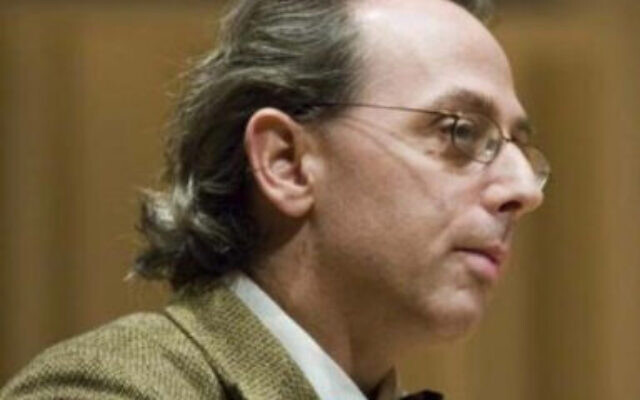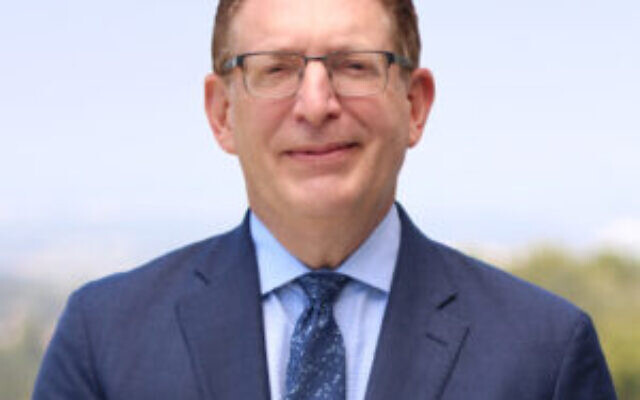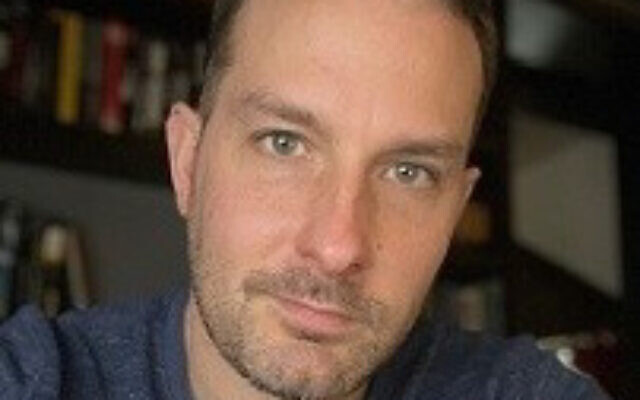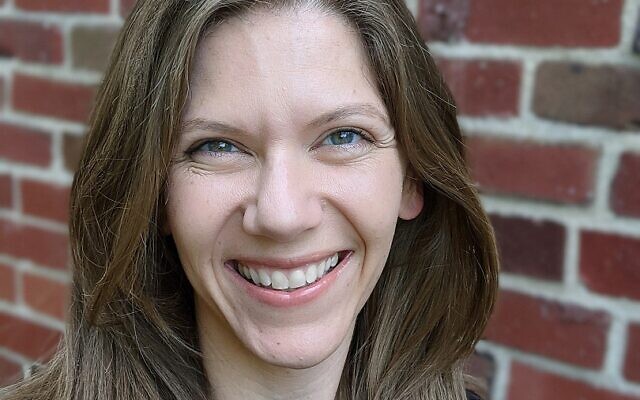Academics Address Growing Antisemitism in America
Research suggests that speaking up against hate speech helps.

No one is questioning that there is an increase in antisemitism in the United States and that it has become more dangerous. Perhaps the most important question is, how do American Jews combat that rise?
The Network for Responsible Public Policy posed that question recently in a 90-minute Zoom panel that included several educators who research and try to answer that question.

Leading and moderating the discussion was Roger Berkowitz, founder and academic director of the Hannah Arendt Center for Politics and Humanities and professor of politics, philosophy, and human rights at Bard College. Berkowitz and his three fellow panelists agreed that antisemitism has transformed over the years, becoming more amorphous and, as Jeffrey Herbst, president of American Jewish University, underlined, more difficult to understand and deal with. Affiliated with several universities over the years, including Miami University in Ohio and Princeton University, he particularly noted the “chilling atmosphere” of antisemitism on college campuses.
The rise in antisemitism, Herbst pointed out, is “just one manifestation” of the increase in hate and polarization in the country the last few years, along with racism, bigotry, and Islamophobia. He noted that there is a large array of organizations responding to this phenomenon, covering “every niche of the ideological spectrum, right to left.” He added that there’s no lack of funding or awareness, but a variety of tactics that include education and shaming.

“But [we have] failed to stem the increase in antisemitism,” he said, adding, “why have we failed? We don’t need an antisemitism czar.”
According to research conducted by Kurt Braddock, assistant professor in the School of Communication at American University, it is not just outright antisemitic language that is the problem. Braddock said he’s interested in subtext such as dog whistles. Also a faculty fellow at the Center for Media and Social Impact, Braddock’s research focuses on understanding the psychological effects of extremist communication, as well as how those effects can be undermined to prevent violence.

Braddock spoke about the growing antisemitism among elected officials, not just far-right officials, and referred to the great replacement theory that was brandished in the Charlottesville white supremist rally in 2017.
“Jews will not replace us,” was the battle cry then, followed by then-President Donald Trump’s contention that there were “good people on both sides” of the protest.
“Words have meaning,” Braddock emphasized. His research points to three outcomes of exposure to those kinds of messages. One, people develop beliefs similar to those messages. Two, the use of this kind of language by political pundits, such as Tucker Carlson and Alex Jones, “normalizes the language,” followed by behavior. And three, “individuals come to believe they have the power to effect change.” There, he pointed to the massacre of 11 lives at the Tree of Life synagogue in Pittsburgh in 2018.
“My research focuses on how to understand these messages and undermine the behavior,” said Braddock.

Cathy Buerger, director of research at the Dangerous Speech Project, and research affiliate at the University of Connecticut’s Economic and Social Rights Research Group, studies the relationship between speech and intergroup violence. She cited research on countering online antisemitism. She defined counter speech as direct responses to hateful or harmful speech so as to undermine it.
Counter speakers try to reach both silent readers and the original speakers of antisemitism. Among silent readers, the focus is primarily on the “moveable middle,” or those who are easily swayed or not brave enough to speak up on their own. “Internet users take their cues from others, for good or for ill,” she said, calling it the “contagion effect.”
Buerger cited many examples around the world of groups that coordinate their “likes” in support of good comments against hate speech.
“It’s hard to change the minds” of original speakers, “but the number of counter speakers matters. So does the tone and personal characteristics of the counter speakers.”
Buerger acknowledges that counter speech isn’t a full solution to antisemitism, but it “upholds discourse norms against hateful speech. It is not easy to be a first counter speaker, but it gets easier for the second, the third, the fourth.” And it decreases the burden placed on the target of hate speech to respond and lessens the power of speech against targets.
“More speech is the answer,” she stated.
- Education
- Local
- Jan Jaben-Eilon
- Antisemitism
- Network for Responsible Public Policy
- Roger Berkowitz
- Hannah Arendt Center for Politics and Humanities
- Bard College
- Jeffrey Herbst
- American Jewish University
- Miami University of Ohio
- Princeton University
- Kurt Braddock
- School of Communication at American University
- Center for Media and Social Impact
- Tucker Carlson
- Alex Jones
- Charlottesville
- Cathy Buerger
- Dangerous Speech Project
- University of Connecticut’s Economic and Social Rights Research Group
- Racism
- bigotry
- Islamophobia



comments